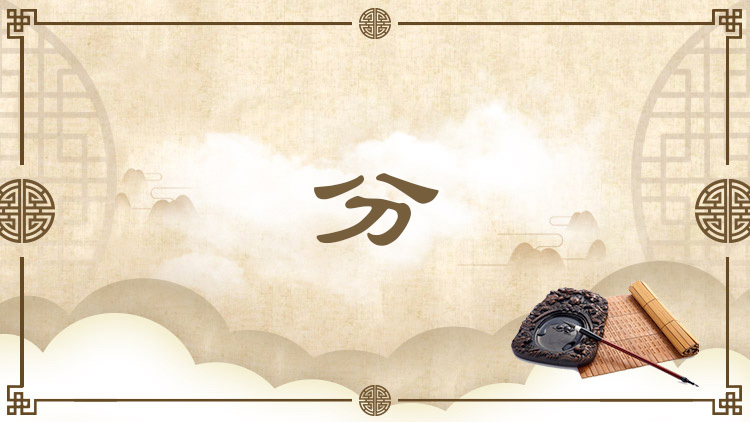分 Fen (Natural Attribute)

名分或位分。在一定的秩序之中,事物与他者相区别的属性、状态及其限度,被称为“分”。“分”标志着事物自身的特质,也决定着与他者相区分的界限,如天人之分、公私之分、死生之分等。“分”或源自自然的规则,或取决于人为的命名与规范。就事物或人天生的本性而言,有所谓“性分”之称。而在人伦秩序之中,特定身份所具有的职责,则被称为“职分”。
This may be used to describe either social status or precedence in seniority. In a specific system, or order, it is used to refer to the natural attributes and limitations that differentiate one thing from another. It projects the distinct quality of one thing and at the same time draws the line that marks its difference from others, such as the attributes that differentiate heaven from man, between private and public, and between life and death. It can derive from either natural law or designated titles or standards. As far as the innate character of objects or people is concerned, the term xingfen (性分) is used, meaning "different characters between different objects or people." In human relations, the responsibility for different people of social status is called zhifen (职分), meaning the special quality that distinguishes one person's responsibility from that of another.
引例 Citations:
◎夫名多不当(dànɡ)其实,而事多不当其用者,故人主不可以不审名分也。(《吕氏春秋·审分(fèn)》)
事物的名号多与其指称的事物不符,而所行之事也多与其目标的功用不匹配,因此君主不可以不审查事物的名分。
Many names and titles do not accord with the things they are supposed to represent, and the tasks they carry out do not match what they are supposed to attain. A sovereign ruler must therefore check to ensure all names and titles accord with their attributes. (Master Lyu's Spring and Autumn Annals)
◎天性所受,各有本分,不可逃,亦不可加。(郭象《庄子注》卷二)
人和事物所禀受的天性,各有各的内容与限度,不能够逃避,也不能够改变。
People and objects each have their own natural attributes and limitations, which they cannot ignore or alter. (Guo Xiang: Annotations on Zhuangzi)
推荐:教育部 国家语委
供稿:北京外国语大学 外语教学与研究出版社
责任编辑:钱耐安





